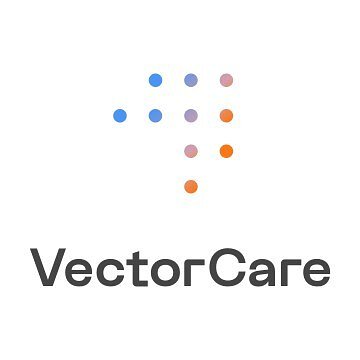
Embedded Logistics: How Tech is Streamlining Hospital Discharges & Reducing Readmissions
A new platform integrates directly into existing EHRs, promising to slash discharge times, improve patient care coordination, and tackle rising healthcare costs. Is this the future of hospital logistics?
Embedded Logistics: How Tech is Streamlining Hospital Discharges & Reducing Readmissions
NEW YORK, NY – November 03, 2025
The Rise of ‘Embedded Logistics’
For years, hospitals have grappled with a persistent challenge: inefficient patient discharge processes. From delayed transportation arrangements to fragmented communication, these logistical hurdles contribute to extended stays, increased costs, and even higher readmission rates. Now, a growing number of technology companies are aiming to solve this problem by embedding logistics directly into existing clinical workflows. VectorCare, a provider of patient logistics technology, recently launched a new SMART on FHIR application designed to do just that, integrating its platform directly into Epic, Cerner, and Allscripts Electronic Health Records (EHRs).
This isn’t just about automating scheduling, explains one healthcare IT administrator. “It’s about shifting the locus of control. Traditionally, logistics have been handled in a silo, separate from clinical decision-making. This integration brings it all into one place, streamlining communication and reducing the administrative burden on clinicians.” The company’s platform claims to offer end-to-end orchestration, connecting hospitals, transportation providers, home health teams, and payers seamlessly. While other solutions focus on individual aspects, VectorCare positions itself as a comprehensive solution.
Speeding Up Discharges and Reducing Costs
The core promise of this integrated approach is speed. VectorCare claims to reduce patient discharge and post-acute care coordination time to under one minute, a stark contrast to the traditional 30-31 minutes often spent on manual processes. “The savings can be significant,” says a hospital finance officer. “Faster discharges free up beds, allowing hospitals to serve more patients. It also reduces the costs associated with extended stays, which can quickly add up.” According to the company, one of its California-based customers saved over $22 million annually by reducing scheduling time. The key isn’t just automation, but the elimination of duplicate data entry and the integration of real-time information.
The impact extends beyond cost savings. By streamlining the discharge process, hospitals can also reduce the risk of readmissions. “Poor coordination of care is a major driver of readmissions,” explains a quality improvement officer. “When patients don’t receive the necessary follow-up care, they’re more likely to end up back in the hospital. This integration helps ensure that patients receive the right care, at the right time, in the right setting.” The new app features real-time updates on transport, equipment delivery, and visit status directly within the EHR, enabling clinicians to proactively address any potential issues.
A Fragmented Market Facing Interoperability Challenges
VectorCare isn’t operating in a vacuum. The patient logistics market is increasingly crowded, with a variety of companies offering solutions for transportation, home health, and durable medical equipment. However, many of these solutions operate in silos, lacking the interoperability needed to create a truly seamless experience. “Historically, the biggest challenge has been connecting all the different pieces,” says one industry analyst. “Hospitals often have to deal with a patchwork of different vendors, each with their own systems and processes.”
This is where the SMART on FHIR standard comes in. FHIR (Fast Healthcare Interoperability Resources) is a next-generation standards framework designed to enable seamless data exchange between different health IT systems. By building its platform on FHIR, VectorCare aims to overcome the interoperability challenges that have plagued the industry for years. “FHIR is the key to unlocking the full potential of health IT,” says one technology expert. “It allows different systems to talk to each other, regardless of their underlying technology.”
VectorCare’s focus on deeply embedding logistics within the EHR distinguishes it from some competitors, who offer standalone solutions. One hospital administrator notes that the integration eliminates the need to switch between different applications, saving clinicians valuable time and reducing the risk of errors. This aligns with broader industry trends toward streamlining workflows and reducing administrative burden. Regulatory changes are also driving the need for better interoperability. Recent CMS regulations mandate data-sharing provisions and require hospitals to send discharge notifications electronically, creating a favorable environment for companies like VectorCare. The push for standardized APIs and improved data exchange is expected to accelerate in the coming years, further solidifying the importance of FHIR.
This year’s changes in regulations are driving a clear need for better data exchange to ensure patient safety, care transitions, and timely access to care. “The regulatory landscape is evolving rapidly, and hospitals need to be prepared,” says a compliance officer. “Companies that can help hospitals meet these requirements will be well-positioned for success.”
